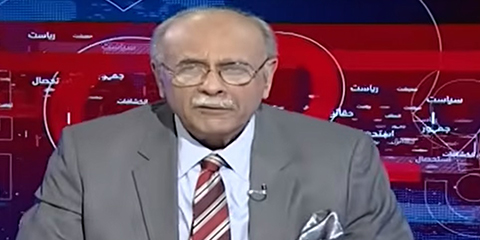Hameed Nizami (1915-1962)
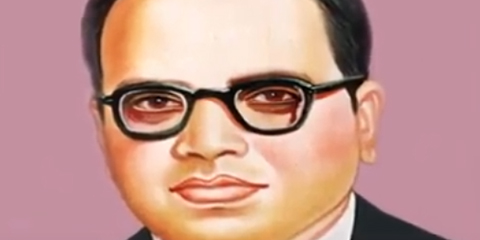
Hameed Nizami was an eminent journalist. He was the founder of the Urdu newspaper Nawa-i-Waqt, and played an important role in the Pakistan Movement.
He was born on October 3, 1915 at Sangla Hill, a small railway junction not far from Faisalabad. He received his early education here and did his Master's in English from the University of the Punjab, Lahore. He was a self-made man and his early life was a great struggle.
While still a student at Islamia College, Lahore, he founded, along with others, the Punjab Muslim Students Federation and became its first elected president. Due to his dynamic role as a student leader, he came close to the Quaid-i-Azam and remained an ardent follower of Muhammad Ali Jinnah and the Muslim League; first as a student leader and later as a journalist.
After attaining his degree, he chose journalism as his career and worked for a short time in the press branch of the Punjab Government. After receiving training under a scheme sponsored by the Punjab Government, he also worked for some time on the staff of National Congress, an Urdu daily started by Dr Satyapal, who represented the liberal wing of the Provincial Congress.
Thereafter, he became the manager of Lahore office of the Orient News Agency and used the resources there for the projection of the League point of view and for helping the cause of Pakistan.
The year 1940 was something of a landmark in the life of Nizami when he launched his fortnightly paper called Nawa-i-Waqt from Lahore on March 23, 1940.
He was elected President of the Punjab Muslim Student’s Federations for the second time in 1942. He was able to convert his fortnightly Nawa-i-Waqt into a weekly on December 15, 1942. In July 1944 it was converted into a daily paper.
The daily Nawa-i-Waqt came out on July 22, 1944 with a prayer and a message of the Quaid-i-Azam. Nizami made Nawa-i-Waqt with all its limitations a powerful newspaper for the cause of Muslim League and the Pakistan Movement.
He was a clear headed, methodical and devoted journalist. With these qualities he made himself a legend. He rendered a lofty service for the cause of Pakistan during the entire period of Pakistan Movement and, later, for the stability of Pakistan. He was a strong spokesman of democracy in the country.
The first Martial Law of 1958 greatly hurt him that proved fatal for his life and he departed in February 1962.
Source: Wikipedia
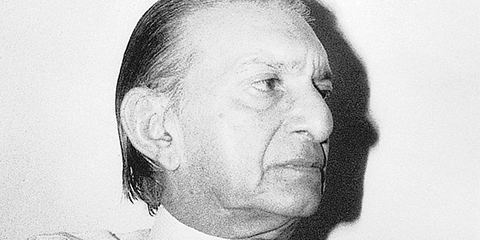
Omar Kureishi (1928-2005)
Omar Kureishi was a distinguished Pakistani writer. He worked in advertising, aviation and journalism, writing for many newspapers, including Dawn, The Pakistan Times, Morning News and The Guardian, London.
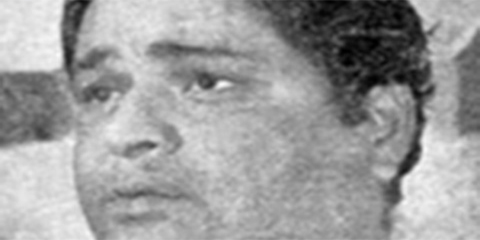
Majeed Lahori (1913-1957)
Majeed Lahori, born Abdul Majid Chohan in 1913 in Gujrat, was truly a people's columnist, according to Khalid Hasan, adding what he wrote remains as delightful today as it was then.

Mazhar Ali Khan (1918-1993)
Mazhar Ali Khan served as the Editor-in-Chief of the newspapers Pakistan Times from 1951 to 1959, Dawn in 1972, and the journal Viewpoint. He graduated from the Punjab University in Lahore in 1939

Safdar Mir (1922-1998)
Born in Lahore, Mohammad Safdar Mir was respected and feared for his encyclopedic knowledge, making his mark as a poet and playwright. He acted on stage in both Bombay and Lahore
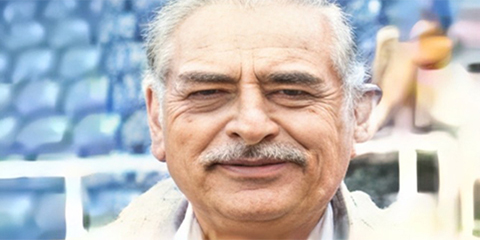
Farooq Mazhar
Farooq Mazhar was Pakistan's most prominent sports journalist, television commentator and former Editor of The News. He died on April 28, 2001 in Bahrain enroute to America after a short illness.

Mushahid Hussain Sayed
Mushahid Hussain Sayed has the distinction of becoming the youngest editor of a national English daily The Muslim (now defunct). He achieved this honor at the age of 29 in 1982.
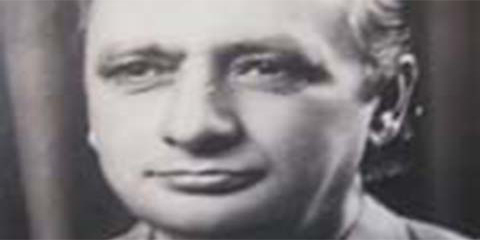
Khalid Akhtar (1935-2005)
Khalid Akhtar was a senior journalist who started his career in 1973 as a Sub-Editor and Editorial Writer with The New Times. He worked with The Muslim in Islamabad as its Executive Editor

Muhammad Ziauddin (1938-2021)
Muhammad Ziauddin, renowned as a capable and fiercely independent journalist, left a lasting legacy spanning over five decades. Known respectfully as Ziauddin Sahab, he was regarded as one of the last legendary journalists in Pakistan.
Newsroom

Pakistan’s ad ban on Dawn sparks media freedom concerns
December 14, 2025 Dawn Media Group says Pakistan has imposed an unannounced ban on government advertising, drawing condemnation from media bodies over press freedom and independent journalism.

Belarus journalist Maryna Zolatava freed after four years
December 14, 2025 Belarusian journalist Maryna Zolatava was released after spending more than four years in detention, along with 123 other political prisoners, highlighting the ongoing struggles for press freedom under Lukashenko.
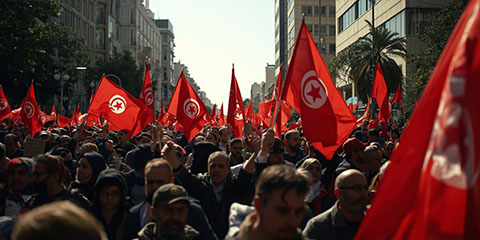
Tunisia protests revive press freedom concerns
December 14, 2025 Protests in Tunisia on December 13 spotlight jailed journalists and politicians, renewing international concerns over legal and administrative pressure on independent media.

PFUJ raises alarm over pressure on Dawn Media Group
December 14, 2025 Pakistan Federal Union of Journalists condemns the advertising ban on Dawn Media Group, warning that it threatens press freedom and calls on the government to restore ads immediately.

Japan anti-espionage law plan raises media freedom fears
December 14, 2025 Japan plans fast-track anti-espionage and secrecy laws, prompting warnings from legal experts and press advocates that broad rules could chill journalism and weaken source protection.





